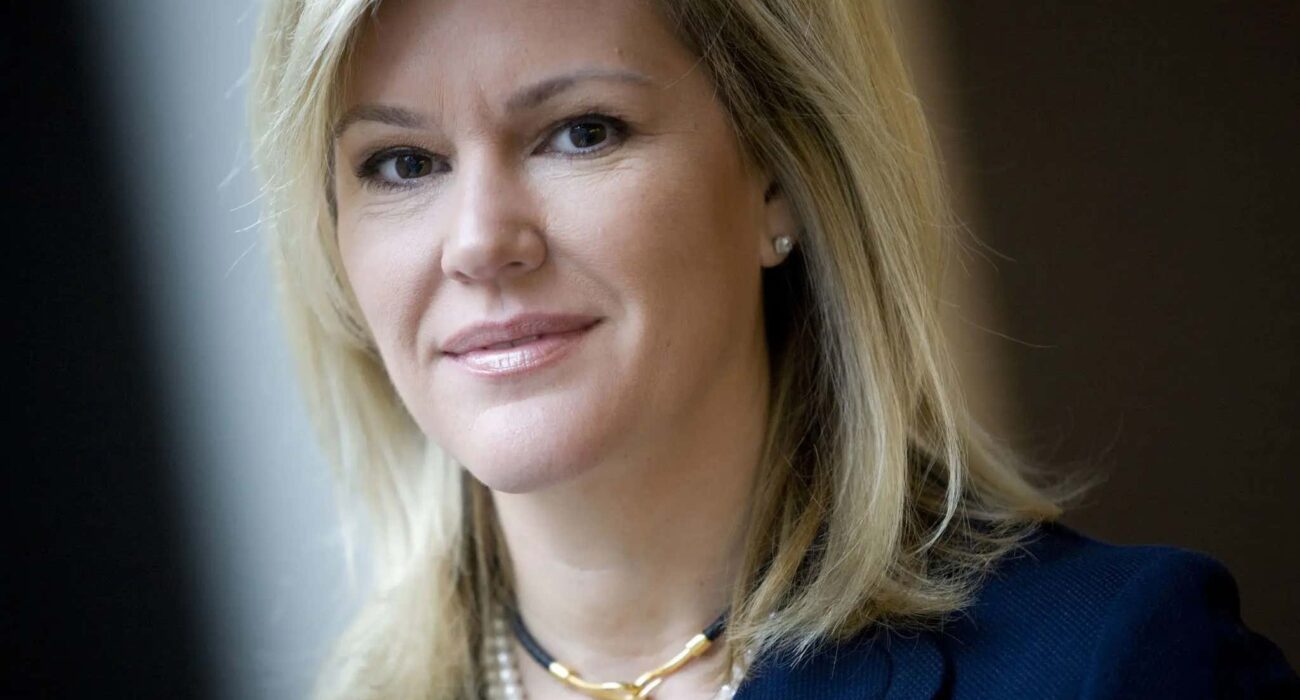 Shutterstock Images.
Shutterstock Images.Like most Boomers, I’ve both bought and sold a house. But still couldn’t pretend to comprehend all the economic forces at work that make the housing market function. So when I downsized last year:
If the conversations between myself, my devoted Irish Rose and either the realtor or the mortgage broker got too complicated for this state college grad, I would politely ask them to dumb it down and don’t be afraid to talk to me like I’m four years old. Then remind them that everything I understand about real estate I learned from Margot Robbie in a bathtub:
Fortunately, we do have people who understand the complexities of all the forces exerting pressure on the market. The myriad of factors affecting this most essential part of The American Dream.
And this one particular expert, who has displayed a genius for predicting disasters in the past has declared another one is coming. And it doesn’t take Robbie covered in bubble bath to know the root cause is dudes not getting laid enough:
Source – A financial analyst nicknamed the ‘Oracle of Wall Street’ has said a ‘growing crisis of the young American male’ will cause house prices to fall as much as 30 percent.
Meredith Whitney, who earned the title after predicting the financial crisis of 2007 – 2008, suggested young men increasingly living with their parents and disinterested in starting families will drastically reduce housing demand.
The trend of men refusing to settle in turn means more women are remaining single into later life, leaving them without the income or need for big family homes.
But it comes as baby boomers start to downsize, meaning there will be a surplus of available properties. Much of the last decade’s gains in home values have been driven by high demand and low supply – a phenomenon, Whitney says, is reversing.
To explain the rise in men living at home, she pointed to the increasing prevalence of video games, starting in the mid-2000s. …
Whitney cited US Census Bureau data showing that before the financial crisis around 13 percent of men aged between 25 and 34 lived at home. …
The data also shows that young women have consistently been around twice as likely to leave their parents’ homes. Last year, just 12.3 percent were still at home. …
‘The biggest driver of home prices has historically been household formation,’ Whitney told DailyMail.com. ‘Household formation today is the lowest it’s been in 160 years.’
And household formation, she said, is driven by the ‘five Ds’ – ‘diamonds, diapers, divorce, debt, and death.’
‘Without at least the first two Ds, there’s no reason to buy a home,’ she said.
Before we get into this, a definition is in order:
Oracle or-e-kel – A person (such as a priestess of ancient Greece) through whom a deity is believed to speak. A person giving wise or authoritative decisions or opinions
In the world of Ancient Greece, no great decisions could be made without first consulting the Oracle of Delphi. And it’s clear that Meredith Whitney earned the nickname by predicting the housing crash that everyone but her and the Christian Bale character completely whiffed on.
So what the actual? She’s seeing another one coming because Gen Z has decided to … what, exactly? Stop trying to meet women? Reverse the entire process that has driven all living things since we were just single-celled microorganisms floating around in the primordial soup? The drive to have sex and pass on your genes? They’ve traded in the most powerful instinct in nature – the desire to procreate the species – for 8 hours a day of chasing zombies through a wasteland in Fallout?
Listen, I’m the last guy to use the played out Boomer trope of the guy “living in his mom’s basement.” That’s a tired, lazy stereotype best left for sports radio hosts who have contempt for their audience. But here it is coming directly from one of our most brilliant economists. Her depiction, not mine. And apparently it’s statically proven to be about to tank our entire way of life.
Look, I’m a Live and Let Live kinda guy. If you’d rather slap hookers or whatever you do in GTA than leave the house and try to find actual flesh and blood women who are sexually attracted to you, that’s not my concern. Go live your life. I might not think it’s a life worth living and will judge you quietly to myself, but you do you. (And if that’s you, you’re literally doing yourself.) You have the right to squander your existence and never take a desirable female to the summit of Bone Mountain all you want.
That is, until it starts to affect me. And I say this for all Boomers. I didn’t come this far and invest my entire net worth into my home just to lose it all to a bunch of people I’ve never met who’d rather sit at home on their Playstations, getting fed by their moms and the Doordash guy, instead of going out, being fruitful and multiplying.
Yours has got to be the first generation in human history to get criticized for NOT being obsessed with sex enough. And it’s time you get off the bench and into the game. The great coach called America is sending you in. You owe it us to put down the controllers, climb out the gaming chairs, get out to the bars and clubs and start doing what comes naturally. The financial health of your country – and me in particular – depends upon you to quit being such pusses and start making the babies, already.
It’s not a big ask, afterall. It’s not like your great grandfathers being handed rifles and told to storm Omaha Beach or Iwo Jima. Now get out there and do your patriotic duty. We’re counting on you.


